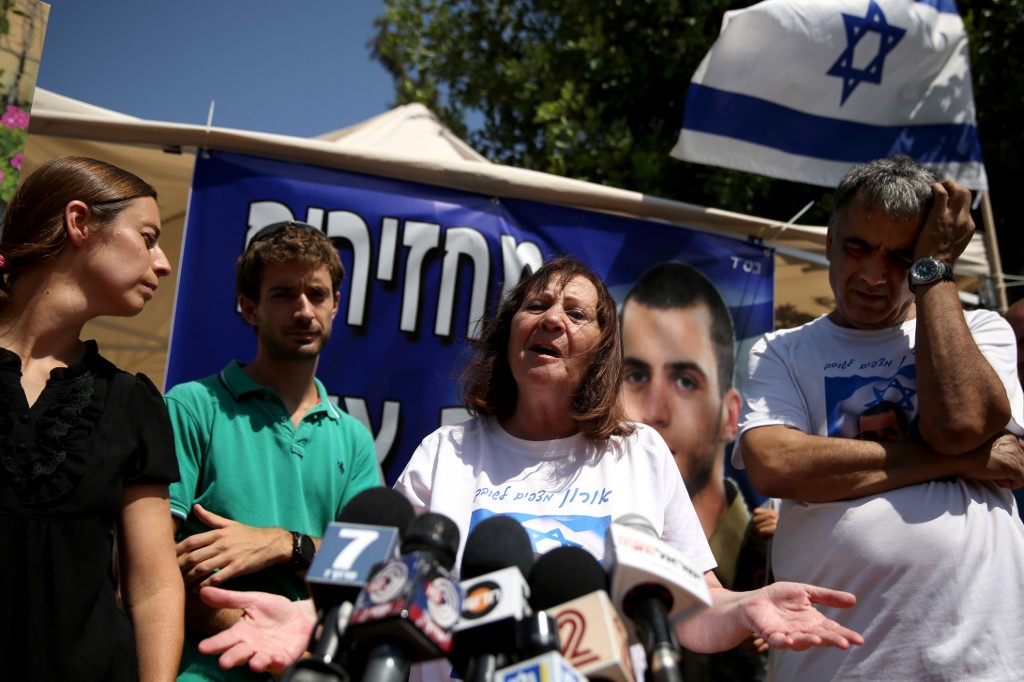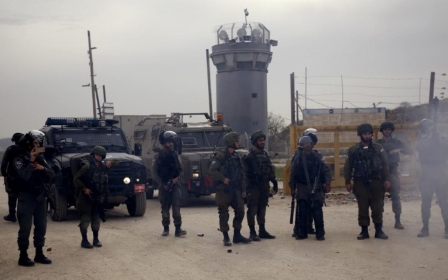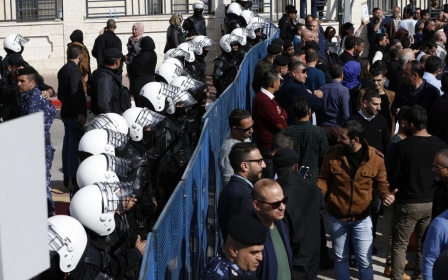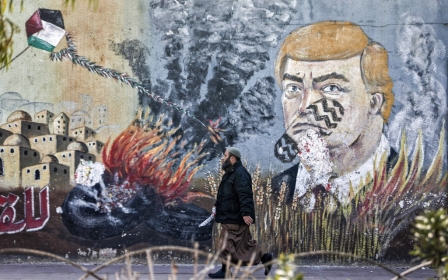Haniyeh: Hamas ready for prisoner swap talks, but Netanyahu holding them up
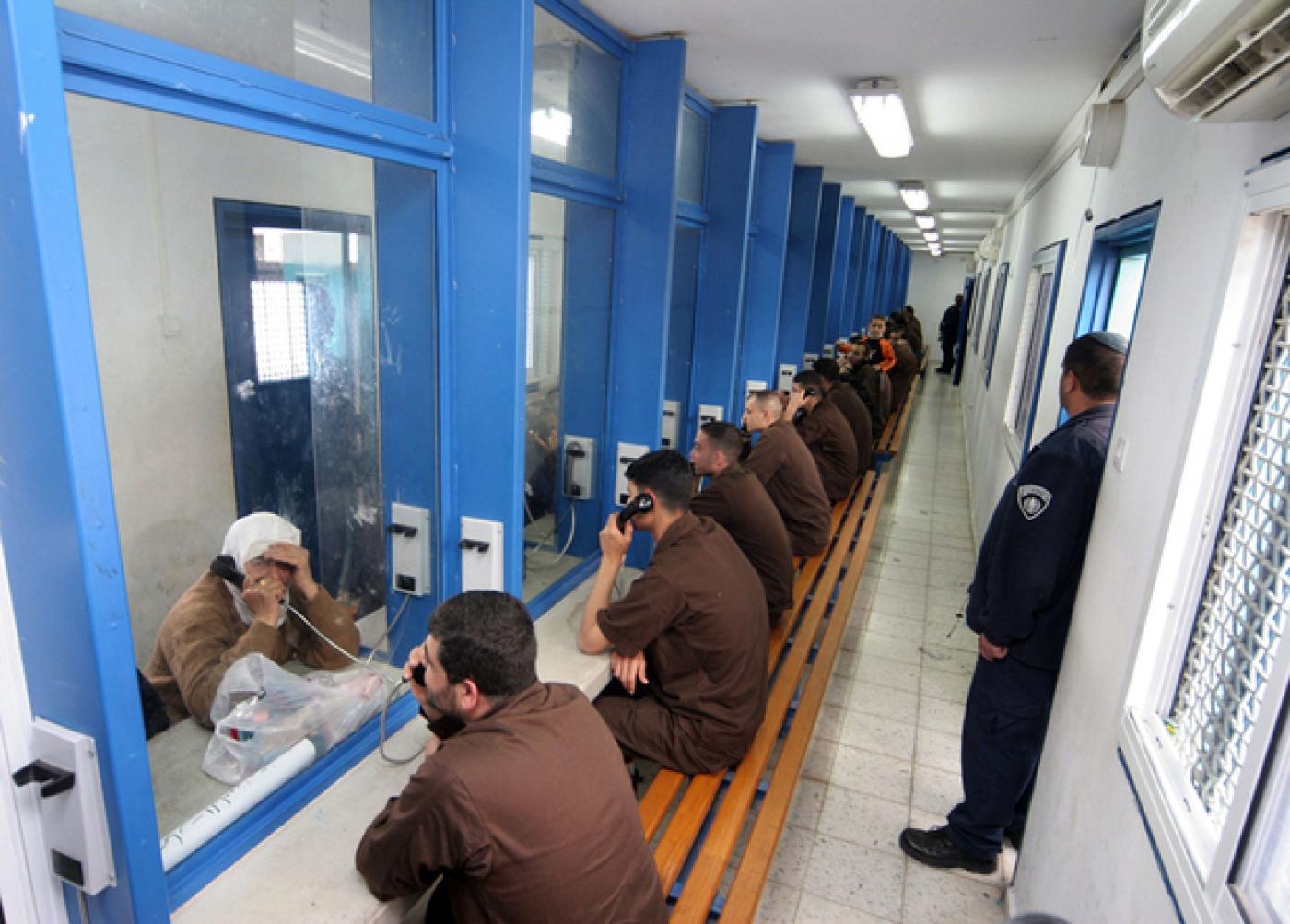
Hamas leader Ismail Haniyeh said on Thursday that Israeli Prime Minister Benjamin Netanyahu is holding up fresh talks on a potential prisoner swap.
'As soon as the Israeli occupation meets our conditions, we are ready to start very fast talks'
- Hamas leader Ismail Haniyeh
Speaking to reporters in Gaza on Thursday, Haniyeh said that Netanyahu has refused to meet conditions in order for talks to begin on the fate of two Israeli soldiers held in Gaza since Israel’s 2014 offensive and two others believed to be in the blockaded enclave.
Those conditions include releasing 52 Palestinian prisoners who were re-incarcerated after a 2011 swap that saw Israeli soldier Gilad Shalit, kidnapped by Hamas in the Gaza Strip in 2006, returned home.
Talks between the two sides about a prisoner swap, mediated by international interlocutors, began in 2016, but they ended without a resolution. In recent months, Egyptian, Qatari and German mediators have engaged Hamas, offering to broker new talks, Haniyeh said.
'My heart tells me he's alive'
New MEE newsletter: Jerusalem Dispatch
Sign up to get the latest insights and analysis on Israel-Palestine, alongside Turkey Unpacked and other MEE newsletters
The two soldiers - Oron Shaul and Hadar Goldin - were lost during Israel's 2014 offensive in Gaza.
At the time, the Al-Qassam Brigades, Hamas’s military wing, announced that its fighters had captured the soldiers but gave no details about their condition or whether they were dead or alive.
In the proceeding years, Al-Qassam acknowledged that the soldiers were in its possession but refused to give further details about their condition.
Israel announced in the summer of 2014 that the soldiers were dead and held official funeral processions for them without their bodies. Both were classified “killed in action”.
Still, the soldier’s families continued to hold out hope that they were alive and to insist that, if they were dead, Netanyahu bring their remains home.
“It isn’t closed, there are gaps,” Zehava Shaul, Oron’s mother, told Israel’s Channel 10 in December 2015, calling for the Israeli government to change his status to “missing in action”. “My heart tells me he’s alive.”
Over the years, Israel has commissioned multiple international bodies and mediators to get information about the two soldiers and two other Israelis who are believed to be in Hamas custody, before starting any talks.
Hamas has repeatedly refused to give any details.
Before the talks for the Shalit swap began, Haniyeh said on Thursday, Hamas set a condition that Israel release 20 female prisoners in return for a short video proving that Shalit was alive.
Eventually, Israel met those terms and, Haniyeh said, should meet it again.
“Israel must pay the price for any single piece of information,” he said.
'Ready to start today'
Freeing Palestinian prisoners from Israeli jails is one of Hamas’s priorities, he told reporters.
“We have been working with other Palestinian factions to end the suffering of the Palestinian prisoners inside the Israeli jails,” Haniyeh said.
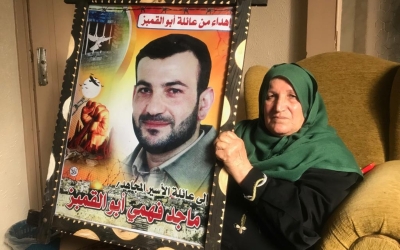
He also stressed that Hamas has insisted that the prisoners are treated with dignity while they remain detained.
“Several regional and international powers have contacted us and told us they can mediate talks of a prisoner swap,” Haniyeh said, citing Egypt, Qatar and Germany as examples.
“We told these states that Israel did not respect the previous one,” he said. “We will be ready to start new talks, but on condition [that Israel] respects the terms of the previous one, but Netanyahu refused.”
The families of the Israeli soldiers have only Netanyahu to blame for the delay, he said.
“As soon as the Israeli occupation meets our conditions, we are ready to start very fast talks. If they accepted today, we are ready to start today.”
Israel holds almost 4,500 Palestinian prisoners, including more than 350 under administrative detention, a practice that allows detainees to be held indefinitely without charge or trial.
Middle East Eye delivers independent and unrivalled coverage and analysis of the Middle East, North Africa and beyond. To learn more about republishing this content and the associated fees, please fill out this form. More about MEE can be found here.


